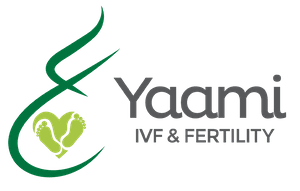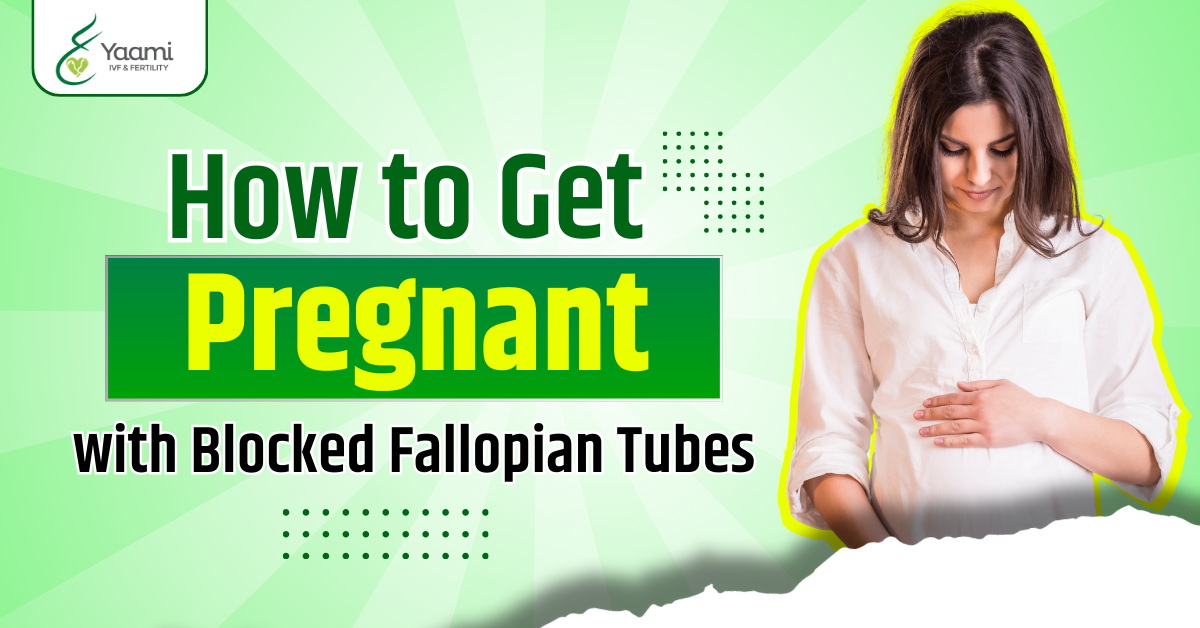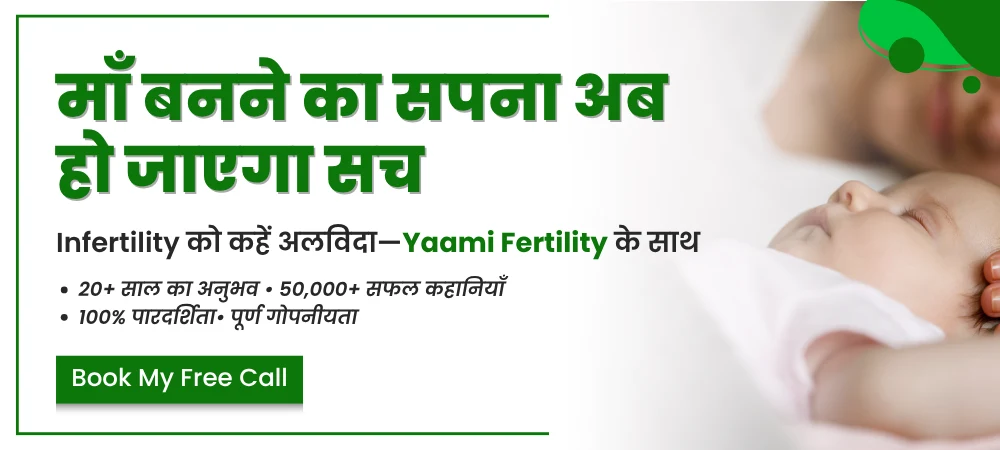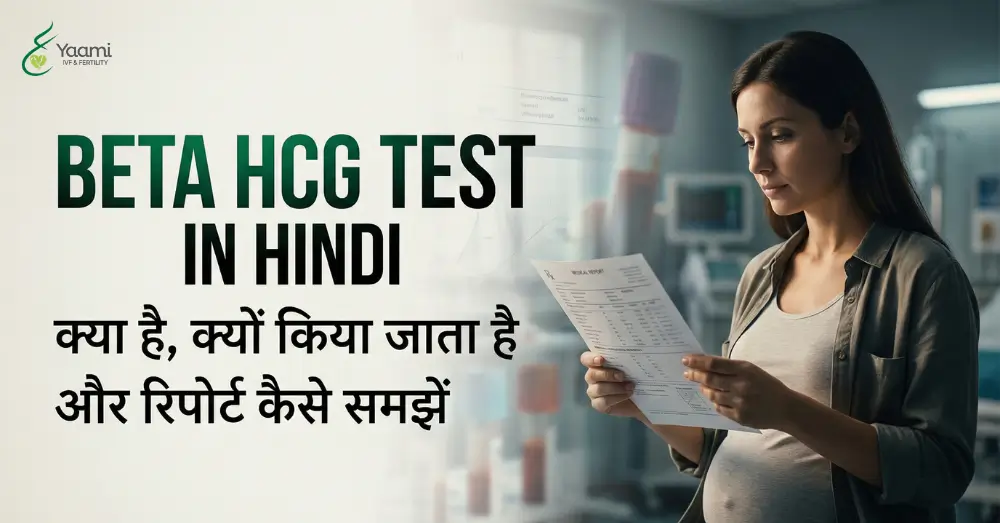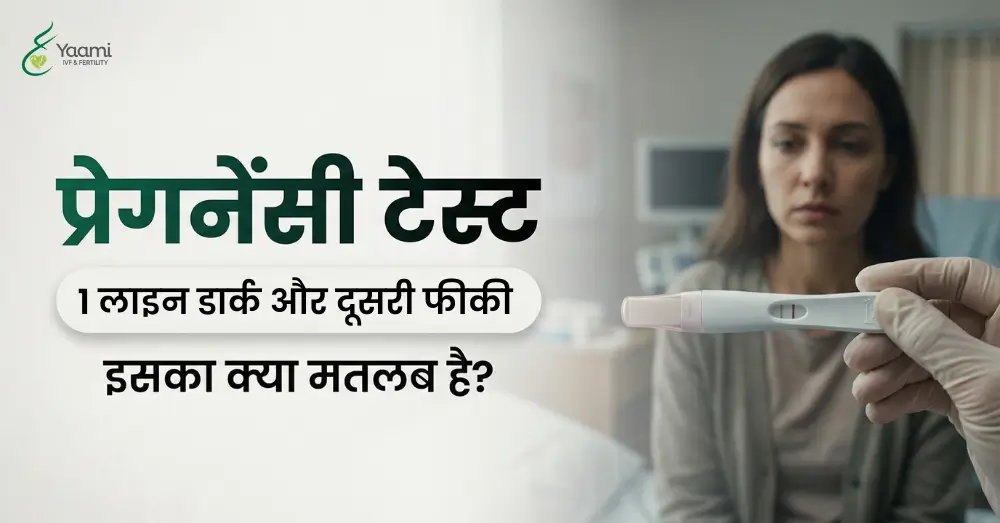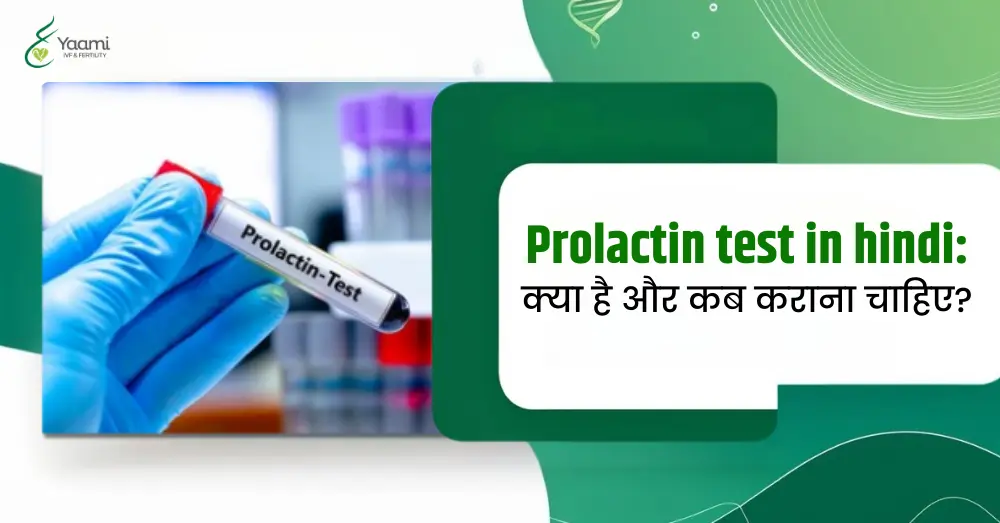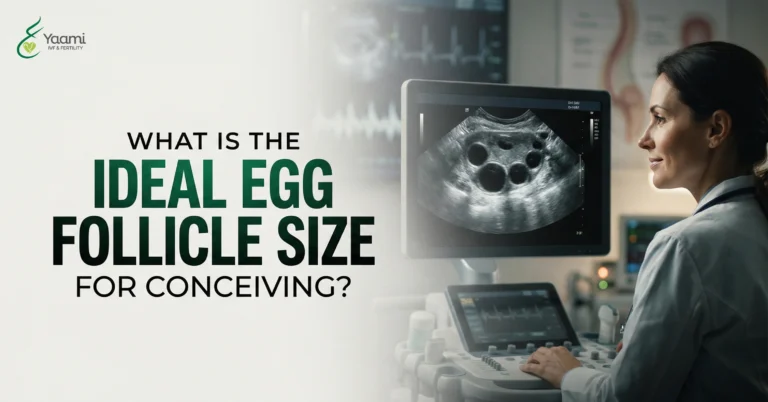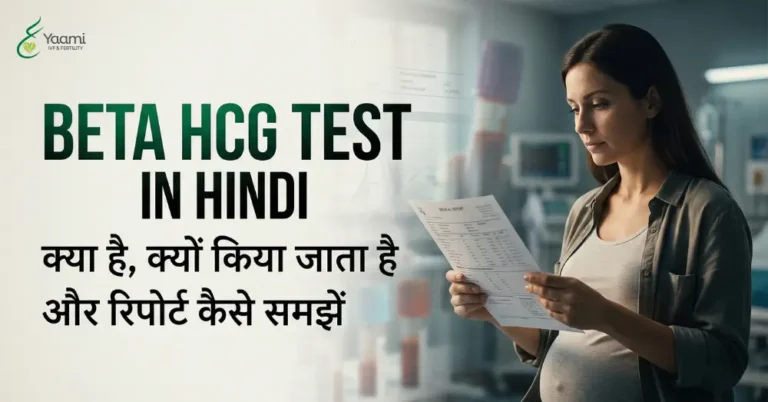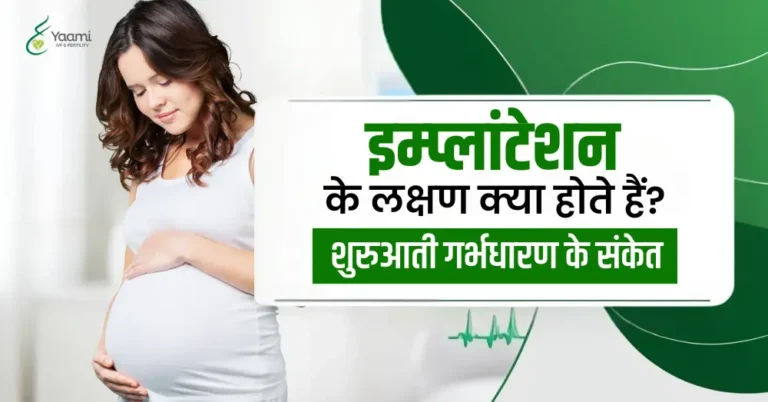Blocked fallopian tubes do not have to block your path to parenthood. Many women face this common barrier to natural conception. But, there are numerous solutions to help you achieve pregnancy.
- A crucial first step is consulting with a fertility specialist who can provide a detailed diagnosis using advanced imaging technologies.
- If feasible, tubal ligation reversal surgery might reopen your natural pathways for conception.
- Alternatively, in vitro fertilization (IVF) offers a successful alternative by bypassing the fallopian tubes entirely.
- Enhancing overall health through better lifestyle habits and precise monitoring of menstrual and ovulation cycles can also improve fertility prospects.
- Addressing additional health concerns is important as they could impact your fertility status.
- Due to the emotional challenges that come with fertility issues, seeking psychological support can provide comfort and guidance.
7 Steps to Getting Pregnant With Blocked Fallopian Tubes
At Yaami IVF Indore, we are dedicated to supporting your journey to parenthood with expert advice and personalised care. We ensure you have the best possible assistance every step of the way. Under the guidance of IVF and fertility experts, let’s find out the details for steps to getting pregnant with blocked fallopian tubes.
1. Seek Professional Guidance
- Consulting a fertility specialist who will conduct a thorough diagnosis using ultrasounds, hysterosalpingography (HSG), and possibly laparoscopy;
- Determine the severity and location of the blockage in the fallopian tubes.
- Essential to understand reproductive health and to create tailored treatment plan.
2. Consider Tubal Ligation Reversal Surgery:
- If previously underwent tubal ligation (a procedure to block the tubes), tubal ligation reversal surgery may be an option.
- This surgery reconnects the fallopian tubes to restore a pathway for sperm to reach the egg, allowing for natural conception.
- This procedure’s success depends on the initial surgery type and the remaining tubal structure.
3. Explore Fertility Treatments:
IVF (in vitro fertilisation) is a widely recommended treatment for women with blocked fallopian tubes. This method offers an effective alternative for conception when natural pathways are not feasible.
- Fertility medications are administered to stimulate the ovaries to produce multiple eggs; Monitored through blood tests and ultrasounds, ensures optimal egg development.
- Thin needle inserted through the vaginal wall to collect mature eggs from the ovaries. Mild sedation is used to ensure comfort.
- Retrieved eggs are combined with sperm in a lab to achieve fertilisation.
- Done in a petri dish or via intracytoplasmic sperm injection (ICSI), where a single sperm is directly injected into each egg.
- Fertilised eggs, now embryos, are monitored in the lab for several days to ensure proper development and quality.
- A selected healthy embryo is transferred into the uterus through a thin catheter. This is a quick, painless procedure that does not require sedation.
- Hormonal support, often progesterone, is given to support the uterine lining and enhance embryo implantation.
- A blood test is conducted about two weeks after the embryo transfer to confirm whether pregnancy has been achieved.
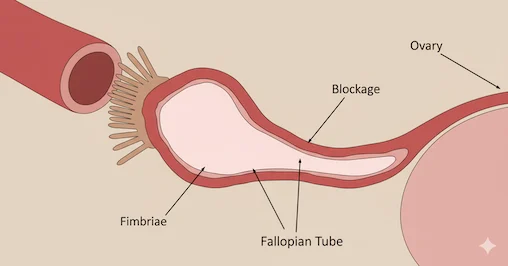
4. Change Your Lifestyle
Enhancing your health can boost fertility. Here’s how:
- Balanced Diet: Eat plenty of fruits, vegetables, lean proteins, and whole grains. Limit caffeine and processed foods. Consider key supplements like folic acid, vitamin D, and omega-3s (consult your doctor).
- Regular Exercise: Aim for moderate exercise, like walking or swimming, for 30 minutes most days. Avoid intense workouts that can disrupt hormones.
- Manage Stress: Practise relaxation techniques such as yoga, meditation, or deep breathing to support hormonal balance and reduce anxiety.
- Avoid Harmful Habits: Quit smoking and reduce alcohol intake, as both can affect fertility.
- Healthy Weight Management: Maintain a balanced weight, as extremes can impact ovulation. A dietitian can help create a personalised plan.
These lifestyle changes can create a healthier foundation for conception
5. Monitor Your Fertility
- Understand menstrual cycle and ovulation patterns to optimise natural conception.
- Ovulation predictor kits, hormone tracking, and regular monitoring with medical support are essential in managing and understanding your fertility status.
6. Address Underlying Health Conditions
Certain health conditions can lead to tubal blockages and affect fertility. Treating these issues can improve your chances of conception. Here’s an overview of common conditions and possible treatment options:
- Endometriosis: A condition where tissue similar to the uterine lining grows outside the uterus, often causing pain and inflammation. Treatment options include hormonal therapies to suppress tissue growth or surgical removal of lesions to restore tubal function.
- Pelvic Inflammatory Disease (PID): An infection of the reproductive organs that can cause scarring and tubal damage. It’s typically treated with antibiotics to clear the infection, and in severe cases, surgery may be required to remove scar tissue.
- Past Infections: Previous infections, particularly sexually transmitted infections (STIs) like chlamydia or gonorrhoea, can damage the fallopian tubes and cause blockages. Early antibiotic treatment helps manage infections, and minor surgical procedures may address any resulting scarring.
- Uterine Fibroids: Noncancerous growths in or around the uterus that may obstruct the fallopian tubes. Medications to shrink fibroids or surgical removal may be recommended if fibroids are affecting fertility.
- Adhesions from Surgery: Scar tissue from previous abdominal or pelvic surgeries can bind the fallopian tubes. Adhesions are often treated with minimally invasive laparoscopic surgery to free the tubes.
Your fertility specialist can help manage these conditions through medications, therapies, or surgical options when necessary.
7. Emotional Support and Counselling
- Infertility can deeply impact emotional well-being, and finding support during this time is essential.
- Counsellors and psychologists helps couples cope with the emotional challenges of infertility.
- iExplore online forums and local groups, where individuals and couples facing similar issues can connect and share experiences.
Conclusion
While blocked fallopian tubes present a complex challenge, there are numerous solutions and steps you can take to increase your chances of conceiving. At Yaami IVF Indore, we provide personalised care and advanced treatments to help you achieve your family planning goals. There is substantial hope for success with the right guidance, treatment plan, and support.
For more information on overcoming fertility barriers or starting your treatment journey, contact Yaami IVF Indore. Our specialists are here to provide expert advice, comprehensive care, and a supportive environment to help you navigate your path to parenthood.
FAQs: Getting Pregnant With Blocked Fallopian Tubes
Can blocked fallopian tubes clear on their own, or do they always require treatment?

In some rare cases, minor blockages may improve on their own or with certain medical treatments. However, most blockages require medical intervention, such as surgery or IVF, especially if conception is the goal.
How successful is IVF for women with blocked fallopian tubes?

IVF has a high success rate for women with blocked fallopian tubes, as it bypasses the tubes entirely. Success rates vary based on factors like age, egg quality, and overall health, but IVF is often one of the most effective options for those with tubal blockages.
Are there natural ways to improve fertility with blocked fallopian tubes?
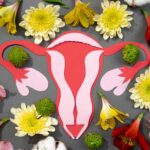
While lifestyle changes, a balanced diet, and stress management can support overall fertility health, they typically don’t unblock fallopian tubes. These approaches may be beneficial alongside medical treatments but are usually insufficient as a standalone solution.
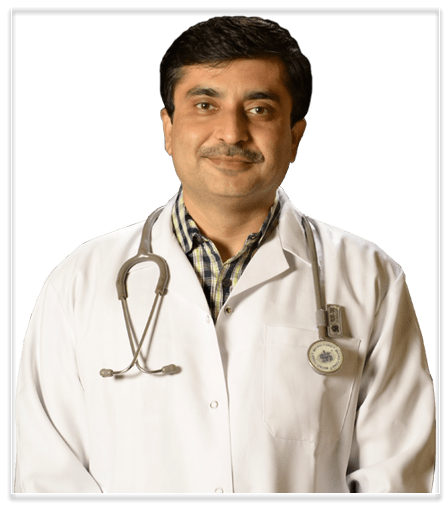
Dr. Sankalp Singh (MBBS, MS – Obstetrics & Gynecology, FIRM, FRM – Germany) is a highly respected Reproductive Medicine and IVF specialist with over 20 years of clinical experience. He is the founder and chief consultant at Yaami Fertility & IVF Center, Indore, where he provides advanced fertility solutions including IUI, IVF, ICSI, and fertility preservation. Trained internationally, Dr. Singh combines global expertise with a compassionate approach to guide couples on their journey to parenthood. He is also deeply committed to academic teaching, clinical research, and spreading awareness about reproductive health and fertility treatments.
